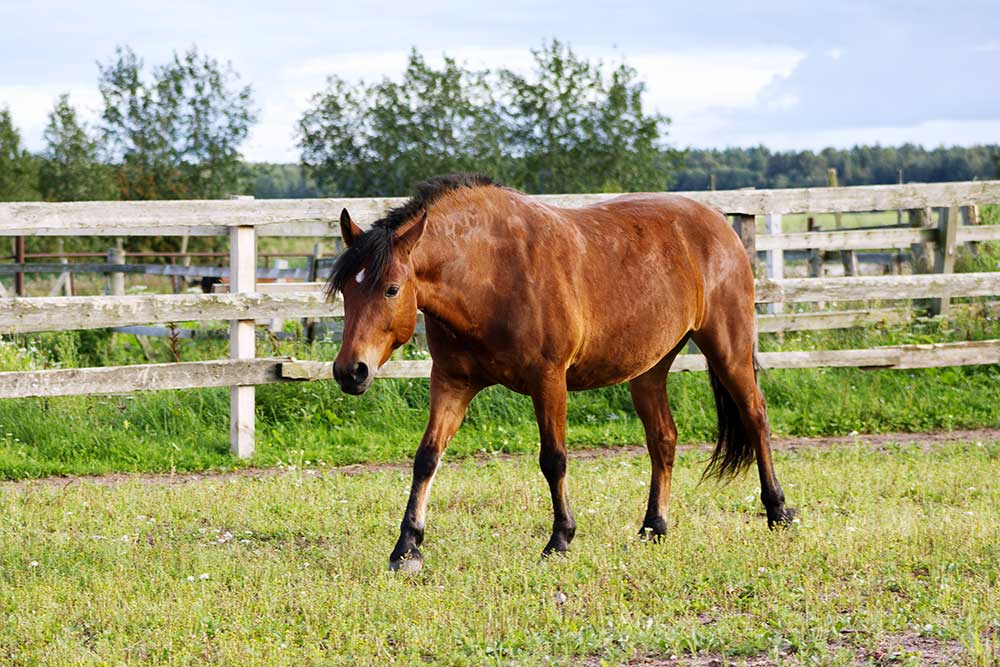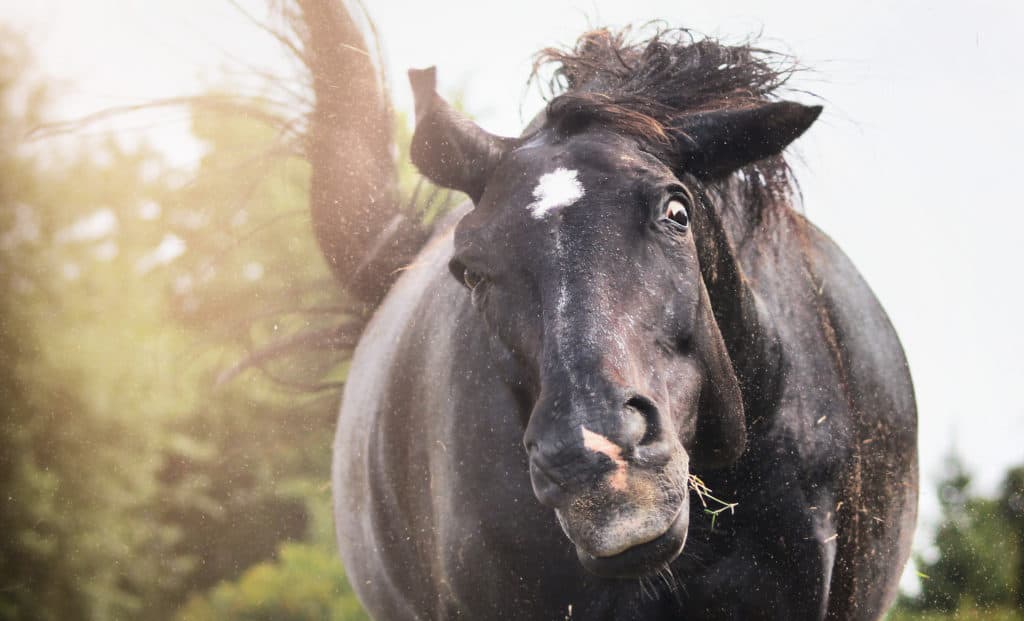
Tips for Getting Horses to Eat Medications
Do you struggle to get pills into your horse? A nutritionist offers advice and some precautions.
Horse-health-problem risk factors, prevention, diagnosis, and treatment

Do you struggle to get pills into your horse? A nutritionist offers advice and some precautions.

Learn about 14 types of colic, or abdominal pain, in horses and their prognoses.

Is it better to leave your barn doors and windows open during winter or close them? Will your horses be healthier living outside during winter? Two experts explain.

Learn how air quality issues such as wildfire smoke and pollution can affect your horse’s respiratory health.

New research is shedding light on equine shivers, a poorly understood neuromuscular condition affecting horse movement and performance.

Keep your broodmare at a healthy weight to help ensure her and her foal’s safety during gestation and foaling.

All week long, learn about what affects a horse’s respiratory health and how you might be able to influence it. Brought to you by Sweet PDZ.

Here’s how to determine if your horse is under- or overweight and, if so, by how much.

Test your knowledge about the tricky world of PPID, EMS, ID, and more.

Researchers say bump kinase inhibitors show promise in treating horses with this neurologic disease. Learn more in the Fall 2024 issue of The Horse.

Can horses lose weight too fast? Does exercise or dietary restriction work better for equine weight loss? Two experts answer these questions and more.

Drs. Jonathan Yardley and Susan White discuss potential insect bite hypersensitivity treatments for horses that do not respond to antihistamines.

Rapid weight loss can lead to hyperlipemia, a serious and sometimes fatal condition.

Find out what health conditions overweight horses might be more likely to develop and how you can help your horse safely lose weight to improve his performance.

Discover how nutritionists took three horses from fat to fabulous.

Dr. Susan White answers a listener question about whether her imported horse could be allergic to environmental factors unique to the United States.
Stay on top of the most recent Horse Health news with
"*" indicates required fields